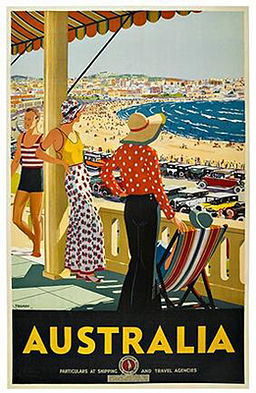Corey Robin illustrates the proverb "good things, when short, are twice as good":
"Historically, liberalism was proffered as an answer to the left. That is what gave it its political heft and social depth. For the last half-century, it's been proffered as an answer to the right. Therein lies the problem."The corollary? Our "defenders" aren't there to "champion" our cause, exactly. If that isn't clear enough, see here.
----------
Robert Paul Wolff's recent writings (here and here) fit very well with Robin's post:
"The simple truth is that none of the 'liberation' movements [i.e. black liberation movement, the women's movement, the gay liberation movement] had an economically radical thrust. In effect, their demands were variations on the same theme: We Want In! We demand to be and to be treated as first-class citizens, not second-class citizens, of this capitalist society - which is, after all, just another way of saying We Want To Be Exploited Just Like White Men!"This is not to deny the justice of these movements. Wolff (a retired professor of Afro-American Studies and father of a gay man) shares their aims.
Wolff's point is that, valuable as they are, their aims can be obtained within a capitalist society: gender discrimination, for instance, is a pre-capitalist atavism. To overcome these residuals of the past is part of the evolution of capitalism and may well mark the outer limits of progress within a capitalist system.
Note the word: progress. Liberals (or progressives) can and often play a part in these movements. But that's as far as they can go as liberals. They can afford it: it does not threaten the capitalist system to whom they are beholden and it will shore it up.
In the process, these "liberals" or "progressives" may well claim (not entirely spuriously) the title of "champions of the oppressed". The problem begins when you believe that.
----------
It may surprise you, but Marx and Engels acknowledged capitalism's civilizing role:
"The bourgeoisie, wherever it has got the upper hand, has put an end to all feudal, patriarchal, idyllic relations. It has pitilessly torn asunder the motley feudal ties that bound man to his 'natural superiors', and has left remaining no other nexus between man and man than naked self-interest, than callous 'cash payment'. It has drowned the most heavenly ecstasies of religious fervour, of chivalrous enthusiasm, of philistine sentimentalism, in the icy water of egotistical calculation. It has resolved personal worth into exchange value, and in place of the numberless indefeasible chartered freedoms, has set up that single, unconscionable freedom - Free Trade. In one word, for exploitation, veiled by religious and political illusions, it has substituted naked, shameless, direct, brutal exploitation.
"The bourgeoisie has stripped of its halo every occupation hitherto honoured and looked up to with reverent awe. It has converted the physician, the lawyer, the priest, the poet, the man of science, into its paid wage labourers.
"The bourgeoisie has torn away from the family its sentimental veil, and has reduced the family relation to a mere money relation."
----------
It's when one conflates this partial civilizing role with the whole labour of civilization that problems arise. For one, that's how words like "left" and "socialist" have lost their meaning, to the point that one of the richest Australian parliamentarians, the current Federal Minister for Communications, Malcolm Turnbull ("conservative, centre-right, libertarian") is seen by some as a "socialist": he supports same-sex marriage, and believes in climate change.
----------
Used intentionally as a deeply dishonest rhetorical device, this surreal twisting of words' meanings is present in other contexts.
Here is an individual who obviously considers himself intellectually sophisticated:
"Profit can be seen as the wages of profiteers for their ability to organise the means of production. In a lot of larger companies that is quite literally the case - salaries for managers with bonuses."Yeah, right. And a hotdog can be seen as the third wheel of a bicycle, or your boss did not choose to kick you out of your job, but "had to let you go".
----------
In a roundabout way, we reach George Monbiot's article on the euphemisms used nowadays (from "human resources", to "collateral damage" and "extraordinary rendition": often a two-word construction!) to dehumanize people and legitimize all sorts of abuses (doesn't "neutralize" sound so much better than "kill"?):
"If we wish to reclaim public life from the small number of people who have captured it, we must also reclaim the language in which it is expressed. To know what we are talking about: this, in more than one sense, is the task of those who want a better world.""Human capital", that conceptual monstrosity, is in Monbiot's list. Maybe "cognitive bias" should be added.

